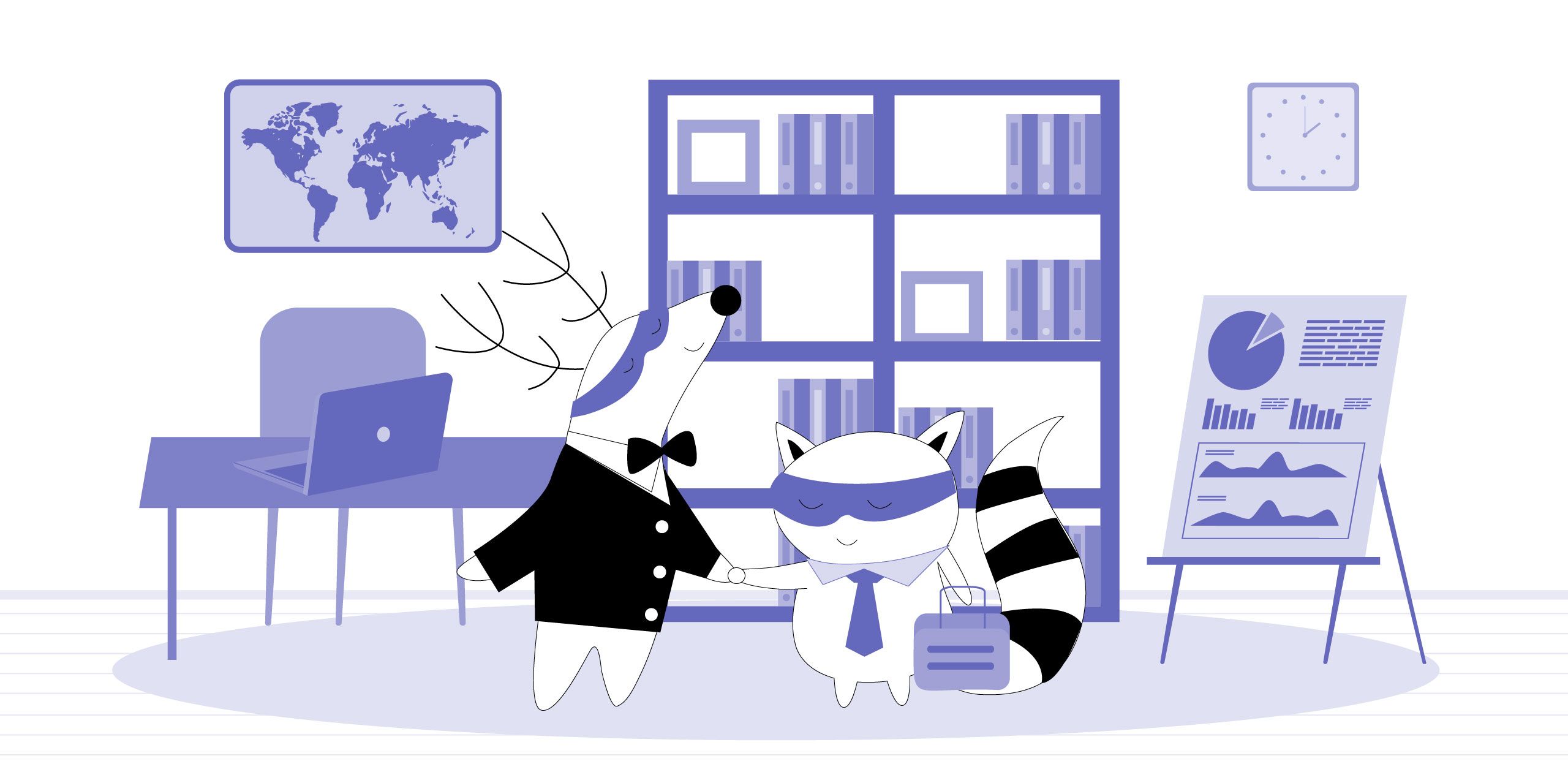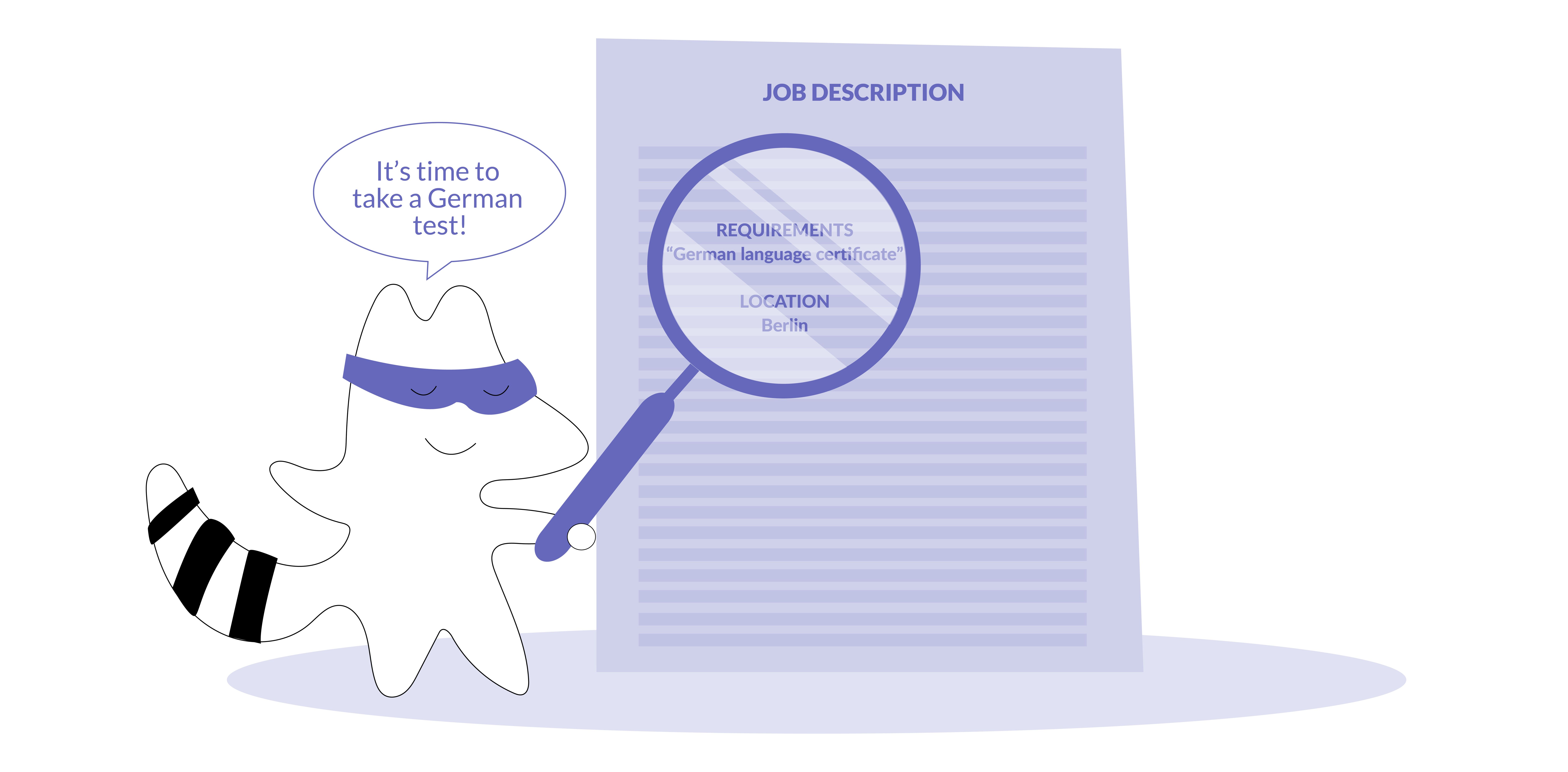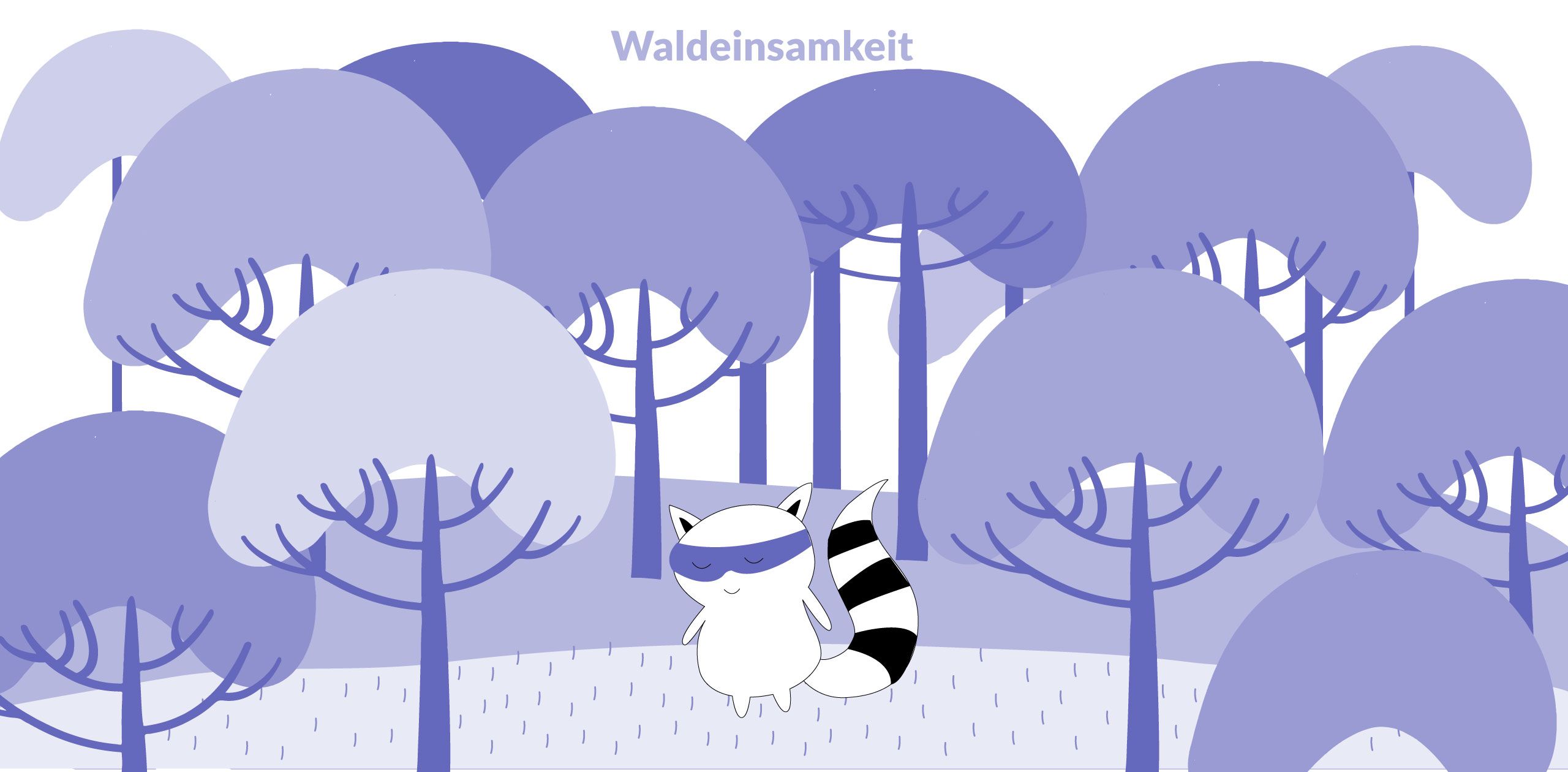
English has a lot of words for emotions, but only so many. These words are often vague and lack the nuance to accurately capture how we feel. This can make it problematic for us when we try to communicate our complex feelings to others.
As we’ve mentioned before, German has a lot of complex words. This means that using German can help us express feelings and complex emotions more accurately than in our native language. These words are worth knowing whether you’re learning the German language or not – but if you are, they can also help you learn more about the German people and their culture.
So, want to know what that feeling is called when you want to jump into the abyss? Read on then.
Learn German with Langster
How to Talk About Feelings in German?
Before we move to the complex concepts relating to emotions and feelings, let’s talk about the basics. In German, there are four different ways used to express your feelings:
- Ich fühle mich… (I feel…) goes with most adjectives. For example:
German
English
Ich fühle mich elend.
I feel awful.
Ich fühle mich toll!
I feel great!
Ich fühle mich einsam.
I feel lonely.
- Ich habe… (I have…) goes with nouns expressing feelings:
German
English
Ich habe Heimweh.
I have homesickness.
- Ich finde das… (I find that…) goes with adverbs and adjectives:
German
English
Ich finde das interessant.
I find that interesting.
Of course, except for these, you can always resort to the basic German “Ich bin” or “Mir ist” which both mean “I am.” While the first one usually refers to general things, such as Ich bin schlecht – “I am bad” (a bad person), the other states more temporary feelings, such as Mir ist übel – “I am sick” (I feel sick at this moment). For example:
German
English
Mir ist langweilig.
I'm bored (at the moment).
Ich bin langweilig.
I’m boring (I am a boring person overall).
Mir ist peinlich.
I’m embarrassed (now).
Ich bin peinlich.
I’m embarrassing (an embarrassing person).
Choosing which construction – Ich bin or Mir ist to use most often depends on intuition rather than on logic. Practice listening to them more often in context, and with time, finding the difference between them will come naturally.
And, of course, there are many other expressions you can use to show how you feel: for example, the famous romantic Ich liebe dich, "I love you."
Remember that there are quite a few words that can be used to describe feelings and emotions in German. They can vary depending on the context, so it’s important to pay attention to the situation you’re in when trying to express how you feel. Here is some vocabulary that should help you get started:
Common German Vocabulary Related to Emotions
General Vocabulary:
German
English
die Emotion
the emotion
das Gefühl
the feeling
die Laune
the mood
sich fühlen
to feel
Feelings and Sensations:
German
English
die Freude
the joy
die Liebe
the love
der Hass
the hate
die Hoffnung
the hope
das Mitgefühl
the sympathy
die Empfindung
the sensation
die Überraschung
the surprise
das Vergnügen
the pleasure
der Hunger
the hunger
der Durst
the thirst
der Schmerz
the pain
Expressing Your Feelings:
German
English
Ich fühle mich gut.
I feel good.
Ich bin glücklich
I’m happy.
Ich bin begeistert!
I'm excited!
Ich bin erleichtert.
I'm relieved.
Ich bin optimistisch.
I'm optimistic.
Ich bin bei Laune.
I'm in good mood.
Ich bin hoffnungsvoll.
I’m hopeful.
Ich bin zufrieden.
I'm satisfied.
Ich bin stolz.
I’m proud.
Ich bin traurig.
I'm sad.
Ich bin müde.
I'm tired.
Ich bin besorgt.
I'm worried.
Ich bin verwirrt.
I'm confused.
Ich bin wütend.
I’m angry.
Ich bin deprimiert.
I'm depressed.
Ich bin einsam.
I’m lonely.
Ich bin nervös.
I'm nervous.
Ich bin voll down.
I'm feeling completely down.
Ich bin enttäuscht.
I’m disappointed.
Ich bin verärgert.
I’m upset.
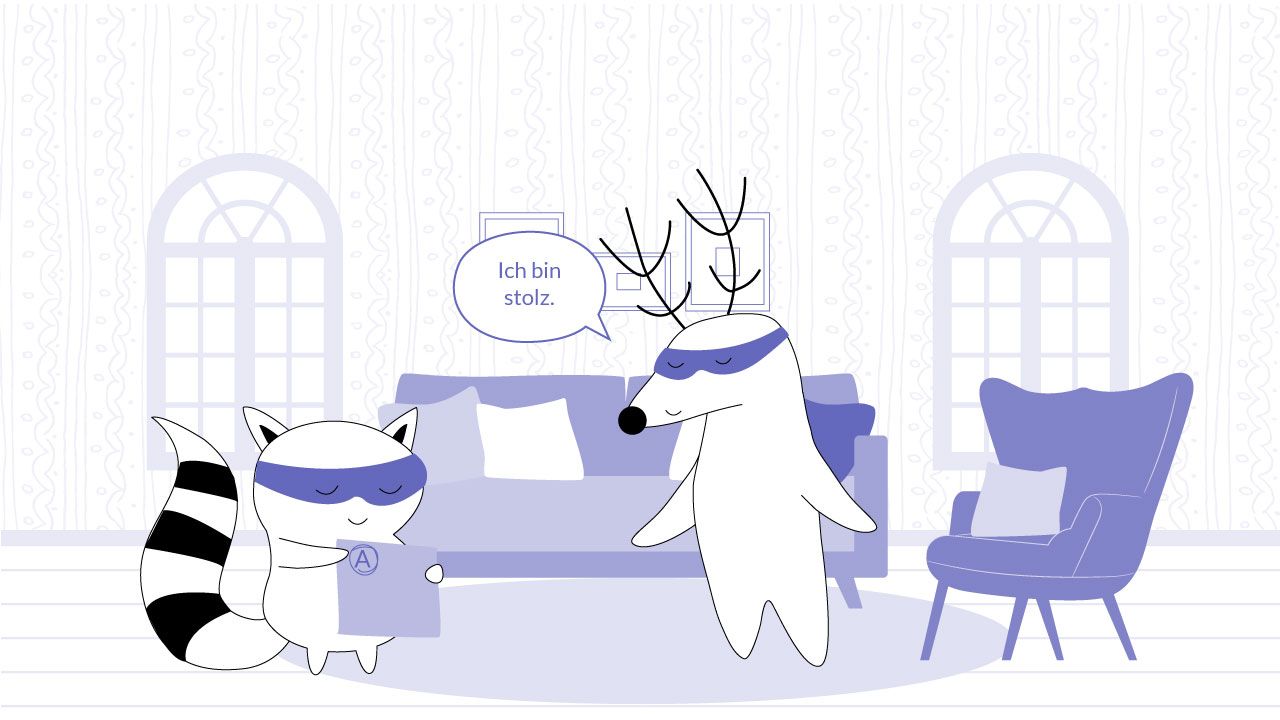
And now that our quick run-through of the basics is finished, let’s move to something more interesting – German words for complex emotions, most of which don’t exist in English.
12 Unusual German Words to Express Feelings and Emotions
1. Angst
This German word actually exists in English – and it's used to express a "a gloomy, often neurotic feeling of generalized anxiety and depression", according to Webster's New World Dictionary. It’s a feeling often expressed by teenagers.
In German, however, Angst simply means "fear" – any kind of it.
2. Mutterseelenallein
This word is used to describe the feeling of utter loneliness when you feel that nobody understands you. It often describes situations when somebody is going through a hard time and feels isolated.
This phrase is literally translated as “mother's souls alone,” which actually comes from a misunderstood French phrase “moi tout seul” – “me all alone.”
3. Gemütlichkeit
Gemütlichkeit is a word that's hard to translate to English – it describes a sense of warmth, coziness, and friendliness. It’s not just “feeling cozy,” as many English speakers think.
Gemütlichkeit is often used to describe a pleasant feeling you get when surrounded by people you love in a cozy setting, like your home. It’s both a physical and metaphorical feeling of warmth.

4. Sehnsucht
If you've ever felt homesick or longing for somebody you love, you know the feeling Sehnsucht describes. Derived from the German verb sehnen, which means “to yearn or long for,” it’s often described as a complex mix of sadness and craving, usually accompanied by a strong desire to be with somebody or something you love but can't.
Sehnsucht doesn’t necessarily occur only in long-term relationships; it’s a desire, “an obsessive yearning” for something that makes you happy but can’t be reached at the moment. Longing for a far-off place, missing home or people you love, craving to be somewhere or with someone that is impossible to fulfill right now.
5. Weltschmerz
Weltschmerz (translated as something like "world-sadness") is a German word that means the feeling of melancholy and pessimism that comes from being aware of the contrast between the way things are and the way you wish they were.
It's often used to describe the feelings of disillusionment that come with age and experience, as you realize that life doesn't always meet your expectations.
6. Fernweh
This word contrasts with Sehnsucht – instead of longing for something you love, Fernweh describes the feeling of longing for a place you've never been to.
It usually means a deep desire to travel and explore new places, and it can be accompanied by feelings of wanderlust (another compound German word!) and curiosity.
7. Fremdschämen
Fremdschämen (which literally means “second-hand embarrassment”) is the feeling of shame or embarrassment on behalf of somebody else. English speakers might describe this as cringing when you see somebody else making a fool of themselves, or doing something awkward or embarrassing.
Ever watched a sitcom where the main character did something stupid and felt embarrassed for him? That’s Fremdschämen.

8. Torschlusspanik
Torschlusspanik is a term that's used to describe the feeling of panic or anxiety that comes from the fear of time running out.
This word is made up of the two German words Torschluss (“gate closing”) and Panik (“panic”), and native speakers often use it to describe the sense of urgency that comes with age, as you realize that time is running out to do everything you want to do in life. Someone feeling Torschluss might feel a need to cross items off their bucket list.
9. Waldeinsamkeit
Waldeinsamkeit is a beautiful German word made out of two words: Wald (“forest”) and Einsamkeit (“loneliness”). You can literally translate it as “being alone in the woods,” but in the peaceful sense.
This word is often used to describe the feeling of being alone in nature. The sensation of being surrounded by greenery and feeling at peace with the world, a truly meditative state, undisturbed by anything or anyone. You can experience Waldeinsamkeit even if you live in the city – it’s the feeling you get when staring up at the night sky and taking in the stars.
10. Flughafenbegrussungsfreude
This word is a mouthful, but it’s one of the many that make learning German worth it. Flughafenbegrussungsfreude consists of three parts: Flughafen (“airport”), Begrüßung (“welcome”), and Freude (“joy”), and it describes the specific joy you feel when you're welcomed home by somebody you love at the airport.
Flughafenbegrussungsfreude perfectly encapsulates the feeling of happiness and relief you get when you're finally reunited with somebody after a long time apart. Whether it's a family member, friend, or significant other, this joy of being greeted by someone you love at the airport just takes over for a wonderful moment. And did you know there’s a similar, yet a bit different word in the French vocabulary?
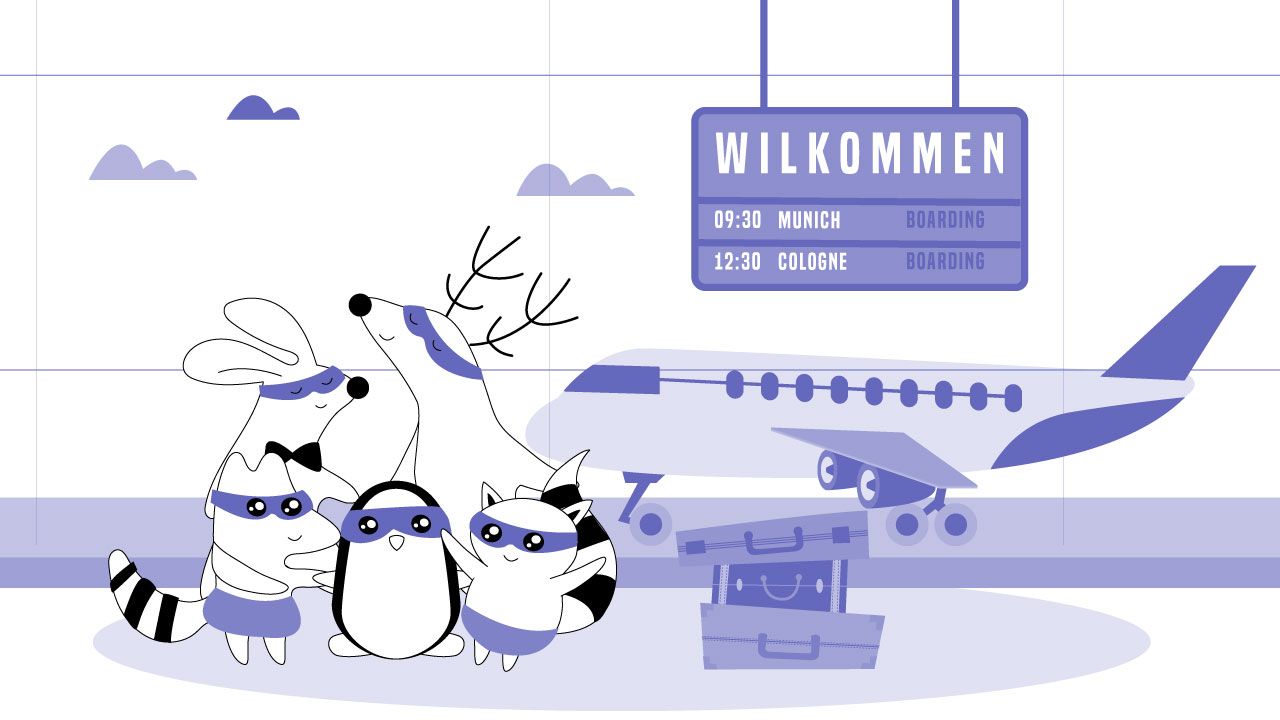
11. Sontagsleere
Have you ever felt a deep emptiness on a Sunday afternoon? That strange feeling of restless boredom, or hollowness, when there's nothing to do and you're just left with your thoughts?
The Germans have a word for that too: Sontagsleere. This word describes the specific type of emptiness and boredom that comes on Sundays, when the weekend is almost over and you're left with the feeling that there's nothing to look forward to.
12. Abgrundanziehung
Do you know that feeling when you look into the abyss and it calls to you? When you stand over the edge of the cliff and feel the need to look over it? Abgrundanziehung is exactly that – the stomach-churning excitement you get from looking down a long way, a desire to jump into nowhere.
The word Abgrundanziehung is also sometimes used to describe the feeling of being pulled towards something dangerous or bad, even though you know you should stay away. The sensation of being attracted to somebody you know is bad for you, or being pulled towards addiction or dangerous activity. It is the tension of longing for something even though you know it's not good for you.
Conclusion
Learning German can be so rewarding, especially when you learn words that don't exist in other languages. With this list of unusual German feelings, you now have a deeper understanding of the complex emotions that people all over the world feel every day. But why stop there?
If you want to learn German and express yourself like a native speaker, there are many other words to inspire you. And there’s no better way than to jump in and start learning with Langster. With our immersive, interactive content, you'll be speaking German in no time. So what are you waiting for? Start your German learning journey today!







